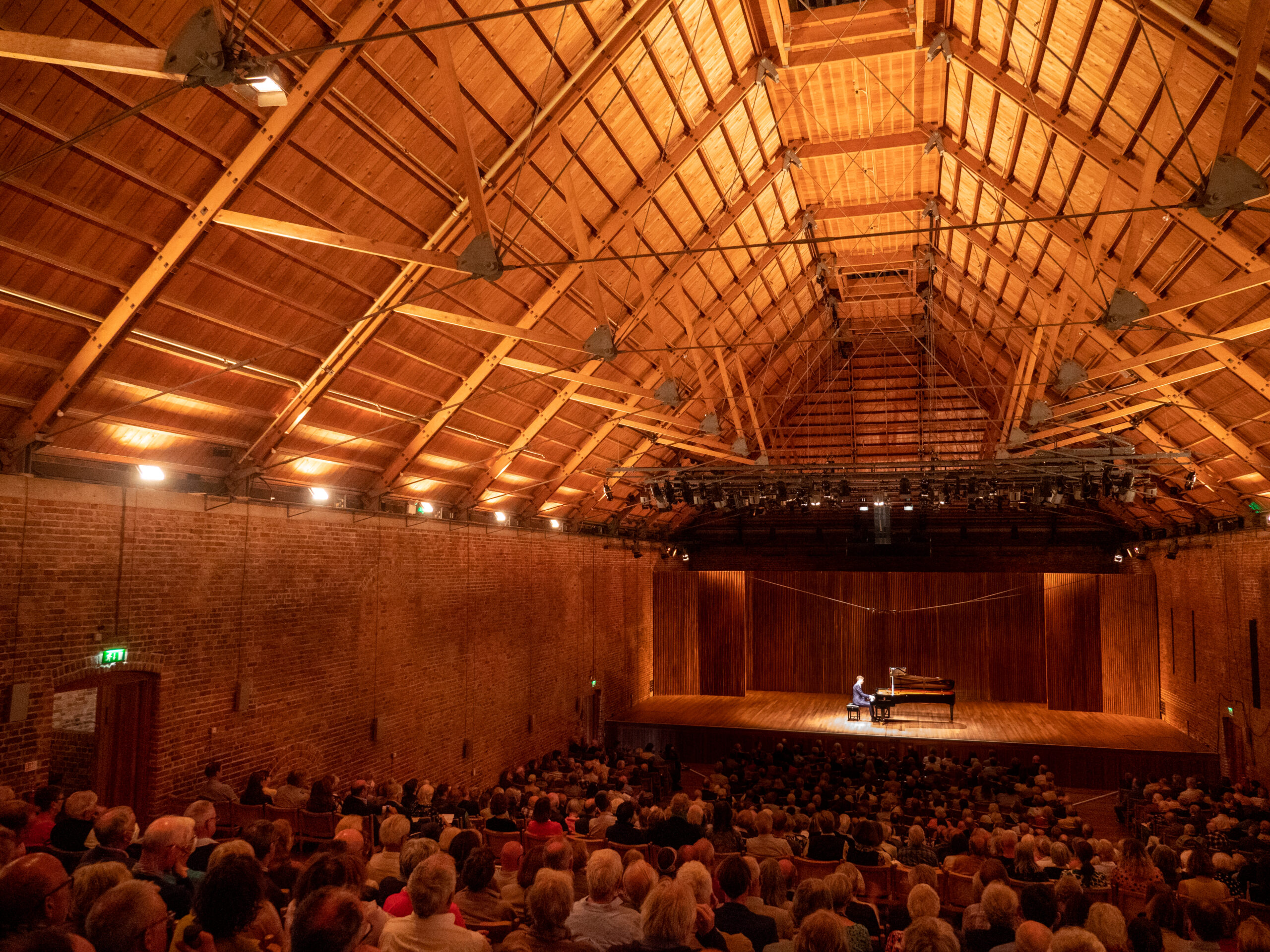
classical music isn’t difficult.
it’s just music.
Thoroughly Good is an independent home for classical music commentary, reflection, and criticism — mildly obsessive, resolutely independent, and dedicated to the act of deep listening.
THOROUGHLY GOOD COMPANION TO THE BBC PROMS
helpful without being pushy

Eight weeks. Dozens of concerts. A wall of classical music.
Where to begin? Here’s a handful of Thoroughly Good handpicked suggestions—ideal for newcomers, curious drifters, or anyone impatient and in need of a shortcut to the good stuff. Ticket links, streaming links, and reviews.
review: traitors prom
Brand tie-ins at the Proms can be clumsy, but The Traitors Prom proved how a crossover event can broaden audiences without alienating core fans. Packed with modest musical nods, inclusive audience engagement, and Claudia Winkleman’s dry delivery, this tightly scripted live event still managed to land on radio — and, unexpectedly, win over even a sceptic.
review: scottish chamber orchestra play beethoven’s 5th

A Scottish Chamber Orchestra Prom of Rameau, Saint-Saëns and Beethoven revealed an emerging broadcast-led strategy in this year’s season: programming designed to be safe rather than startling. But Maxim Emelyanychev’s gritty, defiant Beethoven 5 proved a reminder of why this work is not just enjoyed, but needed.
review: randall goosby at bbc proms 2025
Randall Goosby’s poised, expressive playing with the Orchestre National de France’s refined, responsive sound made this varied programme unexpectedly rewarding.
review: berlioz’s symphonie fantastique
Berlioz’s Symphonie fantastique as the original fever dream: a wild, orchestrated spiral into obsession, intoxication, and gothic fantasy.
review: mahler’s seventh symphony

A sprawling, sometimes unsettling, ecstatic sound-world that asks only for your attention — and gives everything in return. Not for decoding. Unless, of course, you want to.
5 proms to listen out for next week

Look sharp. Here are five standout concerts from the first week—ideal picks for curious newcomers dipping a toe in.
review: ravel’s piano concerto for the left hand
A compelling Proms debut from pianist Nicholas McCarthy in a performance of Ravel’s Piano Concerto for the Left Hand, marked by glassy lyricism and a revealing, if occasionally cautious, orchestral mix.
11 unmissable proms this season
Sitting, standing, or streaming—these eleven concerts are essential listening for anyone.
review first night of the proms 2025
A sparkling season start including music by Mendelssohn, brooding Sibelius, and new music from Errollyn Wallen.
news, reviews, and recommendations
20 years of thoroughly good
-

Review – Bob Chilcott’s Mass for Peace and Reconciliation & Richard Blackford’s ‘The Black Lake’ at Three Choirs Festival 2025
Richard Blackford’s The Black Lake left a profound mark with evocative choral writing, while Bob Chilcott’s Mass for Peace and Reconciliation delivered polish and poignancy. Olivier Latry’s organ recital closed with a roof-raising improvisation.
-

Review – BBC Proms 2025: The Traitors Prom
Brand tie-ins at the Proms can be clumsy, but The Traitors Prom proved how a crossover event can work. Packed with modest musical nods, inclusive audience engagement, and Claudia Winkleman’s dry delivery, this tightly scripted live event still managed to land on radio and, unexpectedly, win over a sceptic.
-

BBC Proms 2025: Strategy, subtext, and the shape of things to come?
Strategic messaging dominates Proms Week 1 but what happens to critique when the mood music is set from the top?
-

Review – BBC Proms 2025: Randall Goosby at BBC Proms
Randall Goosby’s poised, expressive playing with the Orchestre National de France’s refined, responsive sound made this varied programme unexpectedly rewarding.
-

Review – BBC Proms 2025: Beethoven’s 5th Symphony with Scottish Chamber Orchestra and Alexandre Kantorow – Friday 25 July 2025
A Scottish Chamber Orchestra Prom of Rameau, Saint-Saëns and Beethoven revealed an emerging broadcast-led strategy in this year’s season: programming designed to be safe rather than startling. But Maxim Emelyanychev’s gritty, defiant Beethoven 5 proved a reminder of why this work is not just enjoyed, but needed.
-

Review – BBC Proms 2025: Mark Simpson’s ZEBRA with Sean Shibe & Berlioz’s Symphonie fantastique – Tuesday 22 July 2025
Berlioz’s Symphonie fantastique as the original fever dream: a wild, orchestrated spiral into obsession, intoxication, and gothic fantasy. Before that, an opportunity to bear witness in the world premiere of Mark Simpson’s ZEBRA written for Sean Shibe.
-

Review – BBC Proms 2025: Mahler’s Symphony No. 7
A sprawling, sometimes unsettling, ecstatic sound-world that asks only for your attention — and gives everything in return. Not for decoding. Unless, of course, you want to.
-

Review – BBC Proms 2025: Ravel’s Piano Concerto for the Left Hand
A compelling Proms debut from pianist Nicholas McCarthy in a performance of Ravel’s Piano Concerto for the Left Hand, marked by glassy lyricism and a revealing, if occasionally cautious, orchestral mix.
thoroughly good classical music podcast

209: Three Choirs Festival – Thoroughly Good Classical Music Podcast

frequently asked questionS
Quick fire answers to some of commonly asked questions about the Thoroughly Good Blog and its author
ULSTER ORCHESTRA
Sound, memory and the spaces between, observed from the periphery
Special access to the Ulster Orchestra’s BBC Proms rehearsal at the Royal Albert Hall